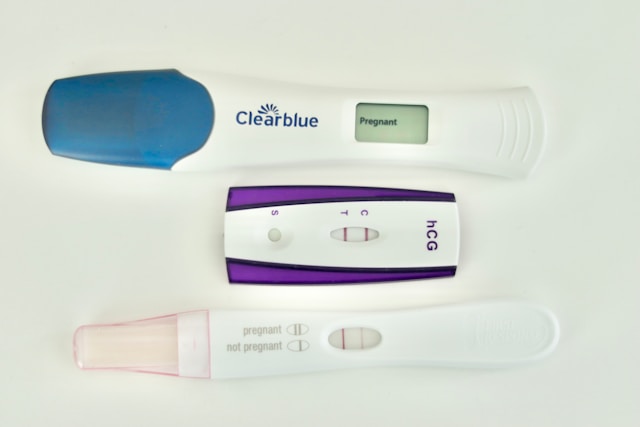Pregnancy is a significant and transformative experience, often filled with anticipation and excitement. One of the earliest stages of this journey is recognizing the signs that indicate pregnancy. While a missed period is the most common and obvious sign, many women experience a variety of early pregnancy symptoms that can occur even before a positive pregnancy test.

Understanding these signs can help you identify pregnancy early and take the necessary steps for a healthy start. In this article, we’ll explore some of the most common early signs of pregnancy, what they mean, and when to consult a healthcare provider.
Missed Period
The most widely recognized early sign of pregnancy is a missed period. It can help to know how soon after unprotected can I test for pregnancy. If your menstrual cycle is regular, this can be the first noticeable indication that you might be pregnant. However, other factors like stress, significant weight changes, or hormonal imbalances can also cause a missed period, so it’s important to confirm with a pregnancy test.
Nausea and Morning Sickness
Nausea, often referred to as morning sickness, can begin as early as two weeks after conception. Despite its name, morning sickness can occur at any time of the day or night. The exact cause is unknown, but it is believed to be related to the rapid increase in hormones like human chorionic gonadotropin (hCG) and estrogen during early pregnancy.
Fatigue
Feeling unusually tired or exhausted is another early sign of pregnancy. This fatigue is caused by the rising levels of progesterone, a hormone that helps maintain the pregnancy. Increased blood production to support the growing fetus and lower blood sugar levels can also contribute to feelings of tiredness.
Breast Changes
Tender, swollen, or sensitive breasts are among the first physical changes you might notice during early pregnancy. Hormonal changes prepare the breasts for breastfeeding, leading to increased blood flow and changes in breast tissue. Some women may also experience darkening of the areolas (the area around the nipples).
Frequent Urination
If you find yourself needing to urinate more often than usual, it could be an early sign of pregnancy. This is due to hormonal changes that increase blood flow to the kidneys, making them more efficient at processing waste. As the uterus grows, it can also press on the bladder, leading to more frequent trips to the bathroom.
Food Cravings or Aversions
Sudden changes in your sense of taste and smell, such as craving certain foods or developing an aversion to others, can be an early sign of pregnancy. Hormonal fluctuations can affect your digestive system and alter your appetite, leading to these cravings or aversions.
Mood Swings
Emotional changes and mood swings are common in early pregnancy due to the rapid increase in hormones like estrogen and progesterone. These hormones can affect neurotransmitters in the brain, leading to heightened emotions, irritability, or anxiety.
Light Spotting and Cramping
Some women experience light spotting, known as implantation bleeding, and mild cramping in the early stages of pregnancy. This usually occurs around 6-12 days after conception when the fertilized egg attaches to the lining of the uterus. The spotting is typically lighter and shorter than a regular period.
Bloating
Hormonal changes can slow down your digestive system, leading to bloating and constipation. This can make your clothes feel tighter around the waist, even in the early stages of pregnancy.
Elevated Basal Body Temperature
If you’ve been tracking your basal body temperature (BBT) as part of your fertility monitoring, you may notice it remains elevated for more than two weeks after ovulation. A sustained rise in BBT can be an early indicator of pregnancy.
Pregnancy Testing: When and How to Confirm
Confirming pregnancy is a significant step for many women, especially after noticing early signs like a missed period or nausea. Pregnancy tests are designed to detect the presence of human chorionic gonadotropin (hCG), produced by the placenta, shortly after the embryo attaches to the uterine lining. Understanding how and when to take a pregnancy test can help you get accurate results and confidently take the next steps.
Types of Pregnancy Tests
There are two main types of pregnancy tests: home urine tests and blood tests performed by a healthcare provider.
- Home Urine Tests: These are the most common and convenient type of pregnancy tests. Available over-the-counter at pharmacies, these tests detect hCG in your urine. They are easy to use and provide results within a few minutes. Some tests are more sensitive than others and can detect pregnancy as early as a few days before your missed period.
- Blood Tests: These are performed in a healthcare setting and can detect pregnancy earlier than urine tests, about 6-8 days after ovulation.
There are two types of blood tests:
- Qualitative hCG Test: This test provides a simple yes or no answer to whether you are pregnant.
- Quantitative hCG Test (Beta hCG): This test measures the specific level of hCG in your blood, which can provide more detailed information, such as detecting very early pregnancy or monitoring the health of the pregnancy.
The Bottom Line
Recognizing the early signs of pregnancy can be an exciting but overwhelming experience. While many of these symptoms can be attributed to other factors, their presence together, especially alongside a missed period, warrants a pregnancy test and a visit to your healthcare provider. Early detection and care are crucial for ensuring a healthy pregnancy journey. If you suspect you might be pregnant, paying attention to these early signs can help you prepare for the changes.
















Add Your Comment